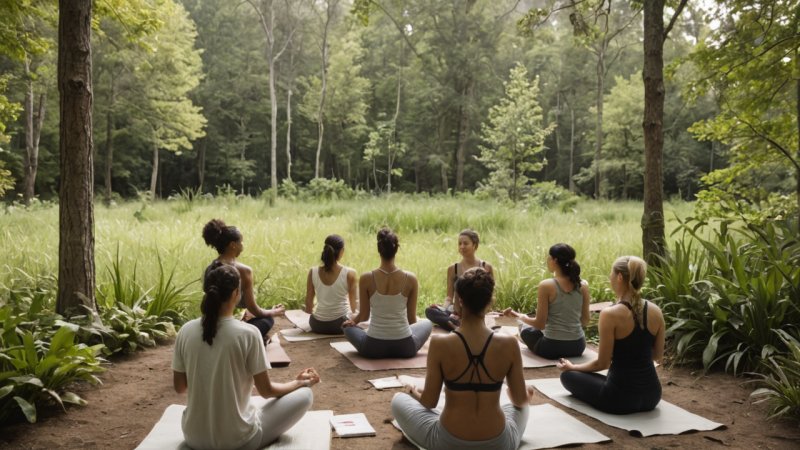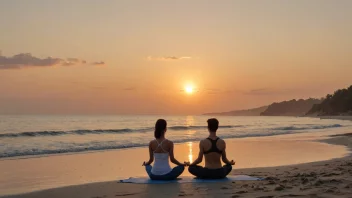In today's fast-paced world, wellness retreats have become a sanctuary for individuals seeking to rejuvenate their minds, bodies, and spirits. Among the various practices embraced at these retreats, gratitude plays a pivotal role in enhancing the overall experience. Embracing gratitude not only fosters a positive mindset but also cultivates deeper connections with oneself and others. Below, we explore some common questions about the significance of gratitude in wellness retreats.
What is the role of gratitude in wellness retreats?
Gratitude serves as a foundational practice in wellness retreats, encouraging participants to reflect on the positive aspects of their lives. This focus on appreciation helps individuals shift their mindset from negativity to positivity, enhancing their overall well-being. By acknowledging and expressing gratitude, retreat attendees often experience increased happiness and reduced stress levels.
How can gratitude practices be integrated into a wellness retreat?
Gratitude practices can be seamlessly woven into various aspects of a wellness retreat. Some common methods include:
- Daily gratitude journaling sessions, where participants write down things they are thankful for.
- Group sharing circles that allow individuals to express appreciation for each other.
- Mindfulness meditation focused on cultivating gratitude.
- Workshops that explore the science and benefits of gratitude.
What benefits does practicing gratitude offer during a retreat?
Practicing gratitude during a wellness retreat can lead to numerous benefits, including:
- Enhanced Mental Health: Regularly acknowledging what one is thankful for can combat feelings of anxiety and depression.
- Improved Relationships: Expressing gratitude can strengthen social bonds and create a sense of community among participants.
- Increased Resilience: A gratitude practice helps individuals develop a more optimistic outlook, improving their ability to cope with challenges.
- Physical Benefits: Studies have shown that gratitude can contribute to better sleep, lower blood pressure, and an overall healthier lifestyle.
Can gratitude be practiced outside of a retreat?
Absolutely! While wellness retreats provide a conducive environment for practicing gratitude, individuals can incorporate it into their daily lives. Simple actions like keeping a gratitude journal, expressing thanks to others, and taking time to reflect on positive experiences can foster a lasting gratitude practice beyond the retreat setting.
How can I maintain a gratitude practice after returning from a wellness retreat?
Maintaining a gratitude practice post-retreat can be achieved through a few simple strategies:
- Create a daily ritual, such as writing down three things you are grateful for each morning or evening.
- Set reminders to pause and reflect on positive experiences throughout the day.
- Share your gratitude with friends and family, creating a supportive environment for gratitude.
- Join or create a community group focused on mindfulness and gratitude practices.
Are there any challenges to practicing gratitude?
While many people find gratitude to be a beneficial practice, some may face challenges such as:
- Difficulty in recognizing positive aspects during tough times.
- Feeling insincere when expressing gratitude out of habit.
- Overlooking small daily moments of appreciation.
Addressing these challenges involves patience and self-compassion, allowing individuals to gradually cultivate a more authentic gratitude practice.
In conclusion, gratitude is a powerful tool that enhances the experience of wellness retreats. By embracing gratitude, participants not only enrich their retreat journey but also cultivate a mindset that can positively influence their daily lives. As you plan your next wellness retreat, consider how you can incorporate gratitude into your experience for lasting benefits.






